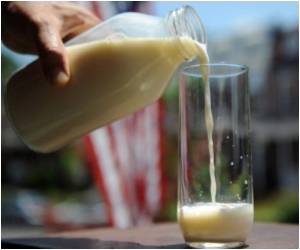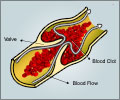A new research work finds blood poisoning boosts the risk of suffering a blood clot in either the brain or the heart.

The study has just been published in Circulation, which is one of the world's most respected medical journals in the area. In recent years there has been a growing level of interest for the correlation between the risk of blood clots and infections such as e.g. blood poisoning. The researchers hope that the new knowledge can be utilised to ensure better prevention and earlier treatment: "It is important that we have now documented that there is a clear correlation between blood poisoning and blood clots. The new knowledge can be used by the medical doctors to increase focus on this patient group so they can begin relevant treatment quicker," says Reimar Wernich Thomsen from the Department of Clinical Epidemiology at Aarhus University and Aarhus University Hospital. He explains that the correlation may, among other things, be due to the fact that the blood clots arise due to the increased strain on the heart and blood vessels that the infection causes.
Facts about the study:
- The study followed 4,389 patients.
- The patients were admitted during the period 1992-2011.
- All of the patients came from the Northern Jutland region.
- The researchers have followed the patients via the Danish National Patient Register.
Source-Eurekalert















